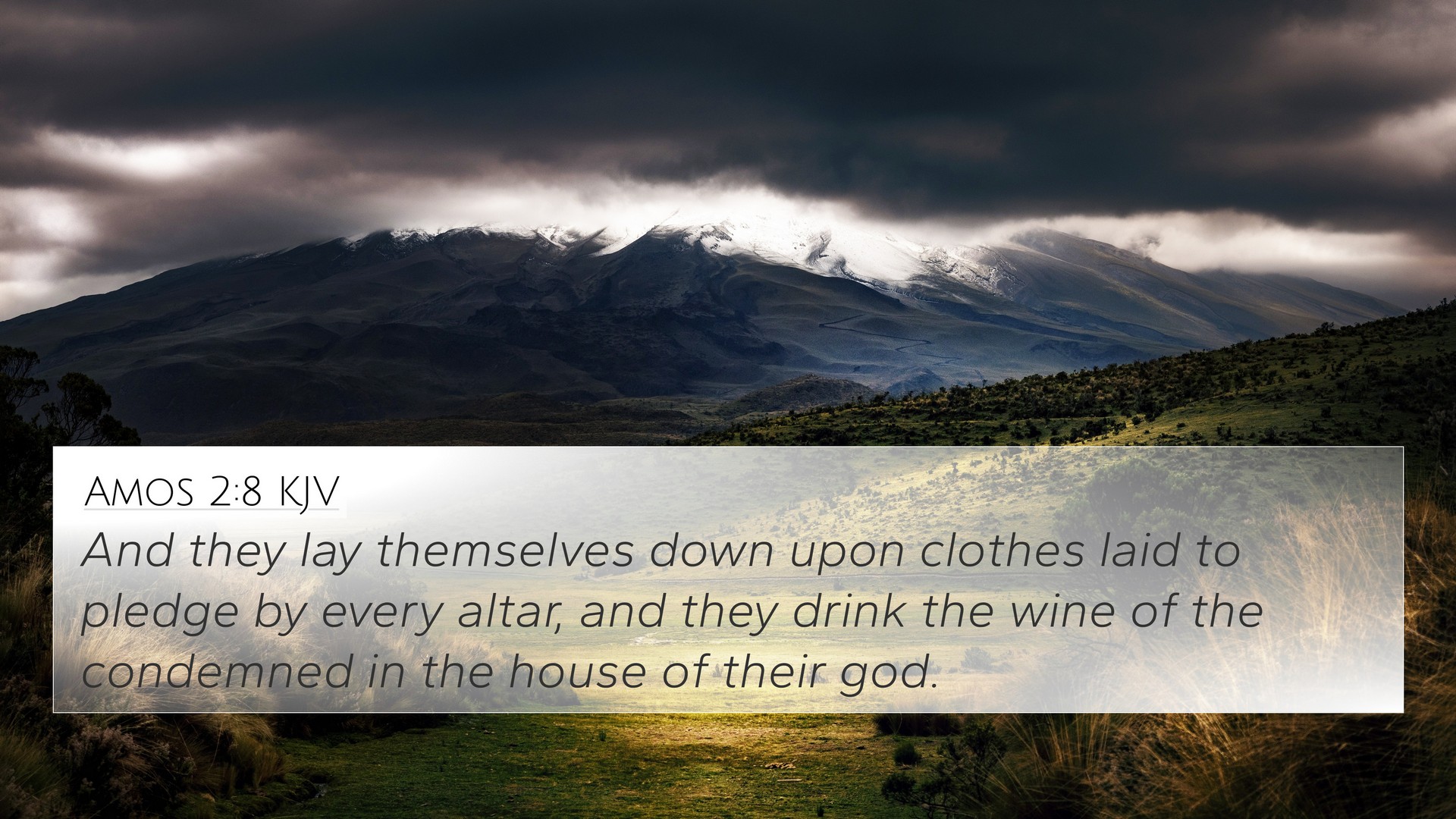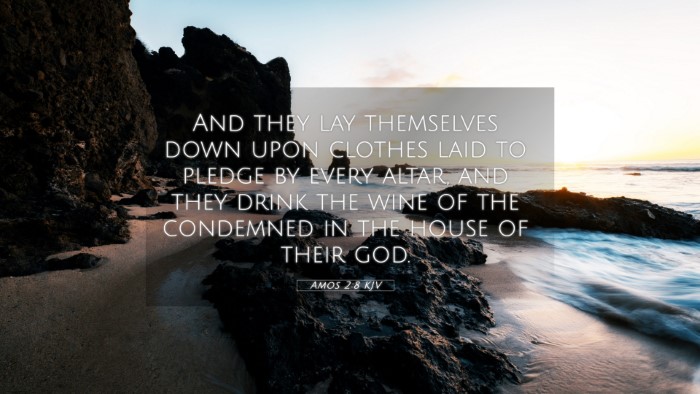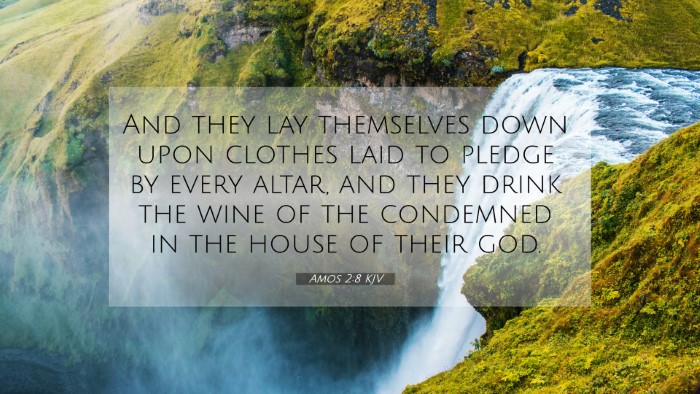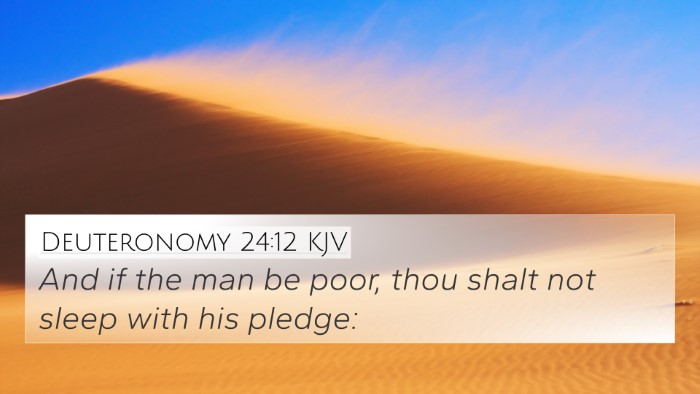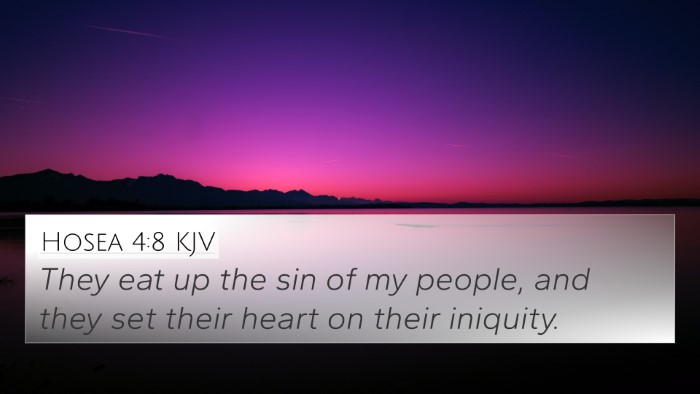Old Testament
Genesis Exodus Leviticus Numbers Deuteronomy Joshua Judges Ruth 1 Samuel 2 Samuel 1 Kings 2 Kings 1 Chronicles 2 Chronicles Ezra Nehemiah Esther Job Psalms Proverbs Ecclesiastes Song of Solomon Isaiah Jeremiah Lamentations Ezekiel Daniel Hosea Joel Amos Obadiah Jonah Micah Nahum Habakkuk Zephaniah Haggai Zechariah MalachiAmos 2:8 Similar Verses
Amos 2:8 Cross References
And they lay themselves down upon clothes laid to pledge by every altar, and they drink the wine of the condemned in the house of their god.
Uncover the Rich Themes and Topics of This Bible Verse
Listed below are the Bible themes associated with Amos 2:8. We invite you to explore each theme to gain deeper insights into the Scriptures.
Amos 2:8 Cross Reference Verses
This section features a detailed cross-reference designed to enrich your understanding of the Scriptures. Below, you will find carefully selected verses that echo the themes and teachings related to Amos 2:8 KJV. Click on any image to explore detailed analyses of related Bible verses and uncover deeper theological insights.
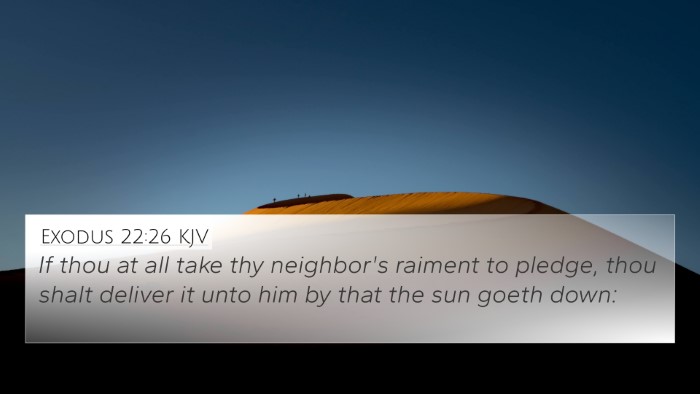
Exodus 22:26 (KJV) »
If thou at all take thy neighbor's raiment to pledge, thou shalt deliver it unto him by that the sun goeth down:
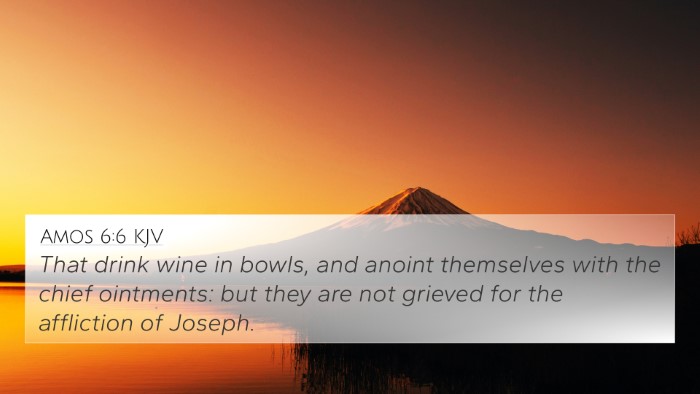
Amos 6:6 (KJV) »
That drink wine in bowls, and anoint themselves with the chief ointments: but they are not grieved for the affliction of Joseph.
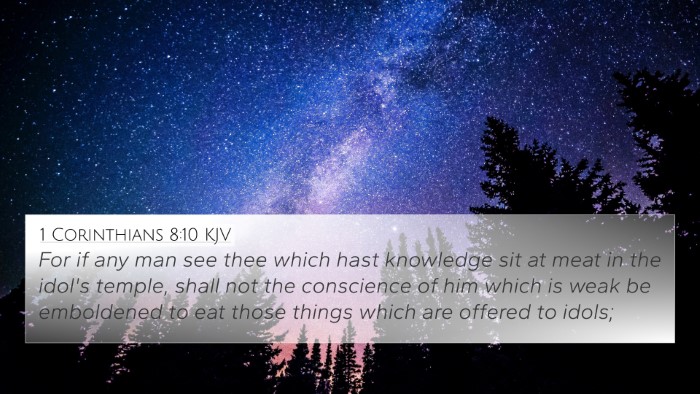
1 Corinthians 8:10 (KJV) »
For if any man see thee which hast knowledge sit at meat in the idol's temple, shall not the conscience of him which is weak be emboldened to eat those things which are offered to idols;
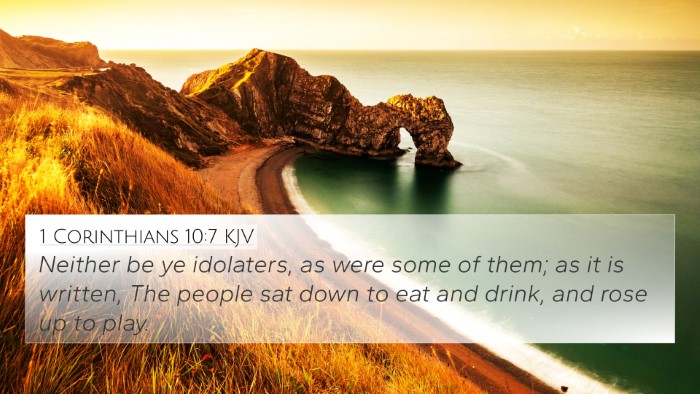
1 Corinthians 10:7 (KJV) »
Neither be ye idolaters, as were some of them; as it is written, The people sat down to eat and drink, and rose up to play.
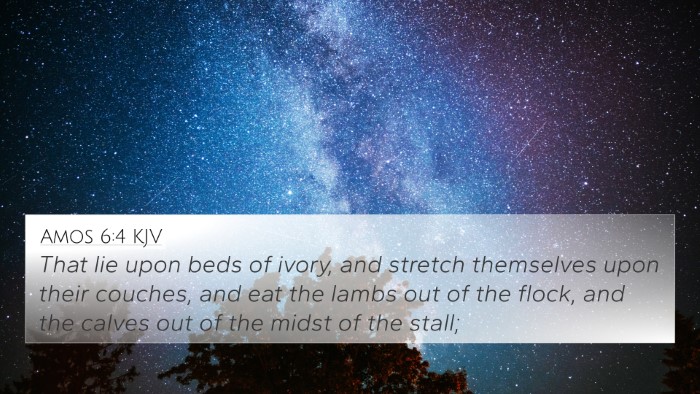
Amos 6:4 (KJV) »
That lie upon beds of ivory, and stretch themselves upon their couches, and eat the lambs out of the flock, and the calves out of the midst of the stall;
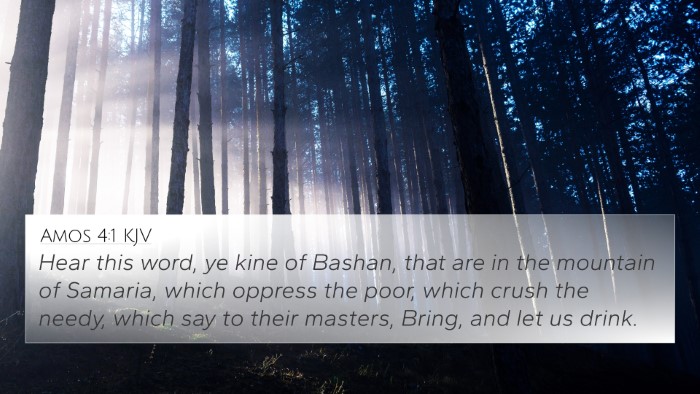
Amos 4:1 (KJV) »
Hear this word, ye kine of Bashan, that are in the mountain of Samaria, which oppress the poor, which crush the needy, which say to their masters, Bring, and let us drink.
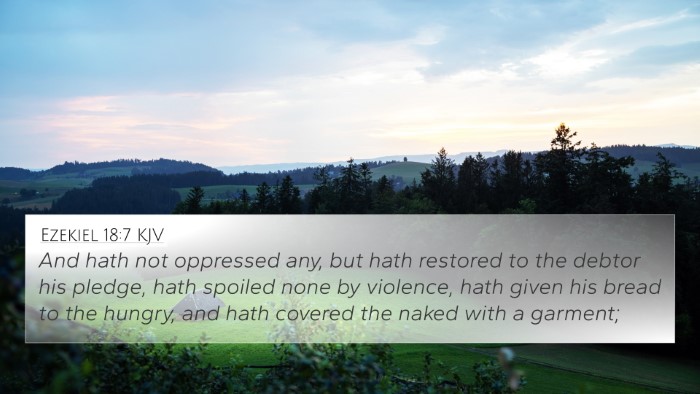
Ezekiel 18:7 (KJV) »
And hath not oppressed any, but hath restored to the debtor his pledge, hath spoiled none by violence, hath given his bread to the hungry, and hath covered the naked with a garment;

Ezekiel 23:41 (KJV) »
And satest upon a stately bed, and a table prepared before it, whereupon thou hast set mine incense and mine oil.
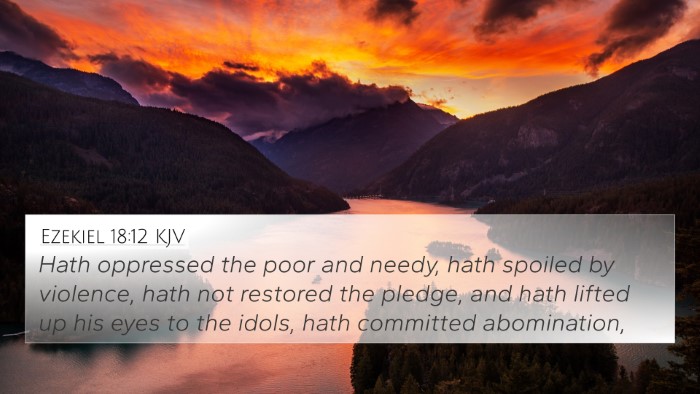
Ezekiel 18:12 (KJV) »
Hath oppressed the poor and needy, hath spoiled by violence, hath not restored the pledge, and hath lifted up his eyes to the idols, hath committed abomination,
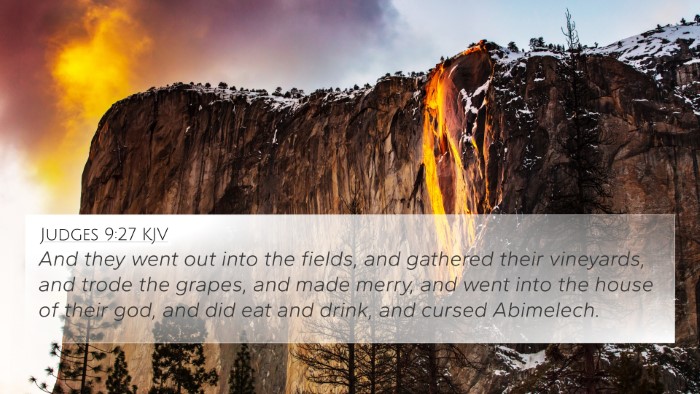
Judges 9:27 (KJV) »
And they went out into the fields, and gathered their vineyards, and trode the grapes, and made merry, and went into the house of their god, and did eat and drink, and cursed Abimelech.
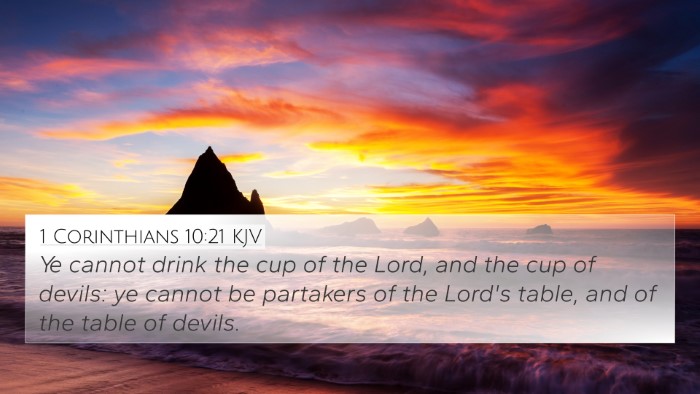
1 Corinthians 10:21 (KJV) »
Ye cannot drink the cup of the Lord, and the cup of devils: ye cannot be partakers of the Lord's table, and of the table of devils.
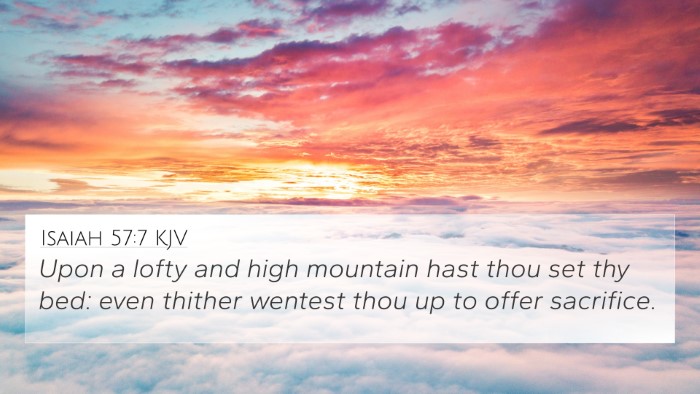
Isaiah 57:7 (KJV) »
Upon a lofty and high mountain hast thou set thy bed: even thither wentest thou up to offer sacrifice.
Amos 2:8 Verse Analysis and Similar Verses
Meaning and Interpretation of Amos 2:8
Amos 2:8 presents a significant reflection on the moral and spiritual state of Israel, delivering a poignant message regarding societal injustices and religious hypocrisy. In combining insights from renowned public domain commentaries, we can grasp a multidimensional understanding of this verse.
Verse Context: The book of Amos primarily addresses the sins of Israel and the impending judgment due to their iniquity. In this particular verse, the prophet Amos outlines specific transgressions that have provoked God's anger.
Verse Text: Amos 2:8
"And they lay themselves down upon clothes laid to pledge by every altar, and they drink the wine of the condemned in the house of their god."
Summary of Insights
In this verse, Amos criticizes the Israelites for their exploitation and immoral behaviors, particularly in relation to their worship practices. Here, we draw from the insights provided by Matthew Henry, Albert Barnes, and Adam Clarke.
Matthew Henry's Commentary
Henry observes that this verse highlights profound hypocrisy among the Israelites. They profess worship yet engage in grievous sins. The act of laying on pledged garments—items that ought to be returned to the poor—at the altar signifies a blatant disregard for justice and mercy. Henry emphasizes that the ritual actions must be accompanied by moral integrity.
Albert Barnes' Commentary
Barnes provides an interpretation that points to the deliberate neglect of the poor and the marginalized. He stresses the sin of using sacrificial practices to mask iniquity, thus indicating how worship is polluted. The mention of drinking "the wine of the condemned" signifies partaking in benefits derived from wrongful acts, showing their moral bankruptcy. This act of drinking while participating in known injustice reveals a heart far removed from true reverence.
Adam Clarke's Commentary
Clarke explains that the phrase "clothes laid to pledge" illustrates the practice of taking advantage of the needy. He argues that the altar of God was being misused as a place for sin rather than sanctuary for sincere worship. Clarke correlates the drinking of wine in connection with the depravity of their offerings and the overarching theme of injustice that ran through their society.
Key Themes and Cross-References
Amos 2:8 reveals themes of hypocrisy, injustice, and spiritual corruption, resonating with multiple passages throughout the Bible. Below are crucial cross-references that provide a deeper understanding of interconnected themes:
- Deuteronomy 24:12-13: Discusses returning garments taken as pledges to their owners, emphasizing the call for justice.
- Isaiah 1:13-15: Confronts empty worship and the impact of sin on prayers and offerings.
- Matthew 23:23: Jesus rebukes the Pharisees for neglecting justice, mercy, and faithfulness while focusing on legalistic rituals.
- James 5:4: Condemns the exploitation of workers, echoing themes of social justice found in Amos.
- Micah 6:6-8: Questions the adequacy of rituals over the requirement to act justly and love mercy.
- Romans 12:1: Calls for a living sacrifice to God, promoting genuine worship above mere compliance.
- Proverbs 21:3: Asserts that doing righteousness is more acceptable to God than sacrifice.
- Hosea 6:6: Emphasizes that God desires mercy over sacrifice, again linking true worship with righteous living.
- Luke 16:13: Illustrates the impossibility of serving both God and riches, further exploring themes of wealth exploitation.
- 1 John 3:17: Warns against closing one's heart toward the needs of others, reinforcing the moral obligation in the faith.
Thematic Bible Verse Connections
This exploration of Amos 2:8 through a comparative lens highlights the value of understanding scripture within the broader biblical narrative. Insights drawn from different parts of the Bible allow us to see how similar themes of justice, worship, and righteousness are consistently presented, thereby creating an inter-Biblical dialogue that encourages deeper study.
Tools for Bible Cross-Referencing
To further delve into the connections between Bible verses, consider utilizing the following tools:
- Bible Concordance: A helpful resource for finding specific verses and their themes.
- Bible Cross-Reference Guide: Offers structured references that link related passages.
- Cross-reference Bible Study: Techniques to explore various scripture connections for deeper insights.
- Bible Reference Resources: Includes study Bibles and software that assist in comprehensive verse hunting.
Conclusion
Amos 2:8 serves as a vital reminder of the call to genuine worship based on justice and righteousness. By examining this verse closely and connecting with other relevant scriptures, one can appreciate the multifaceted layers of biblical instruction and its ongoing call for ethical living within one's spiritual life. The connections between Bible verses not only enhance understanding but also encourage believers to pursue deeper revelations and applications in their lives, fostering a holistic view of scriptural teachings.
